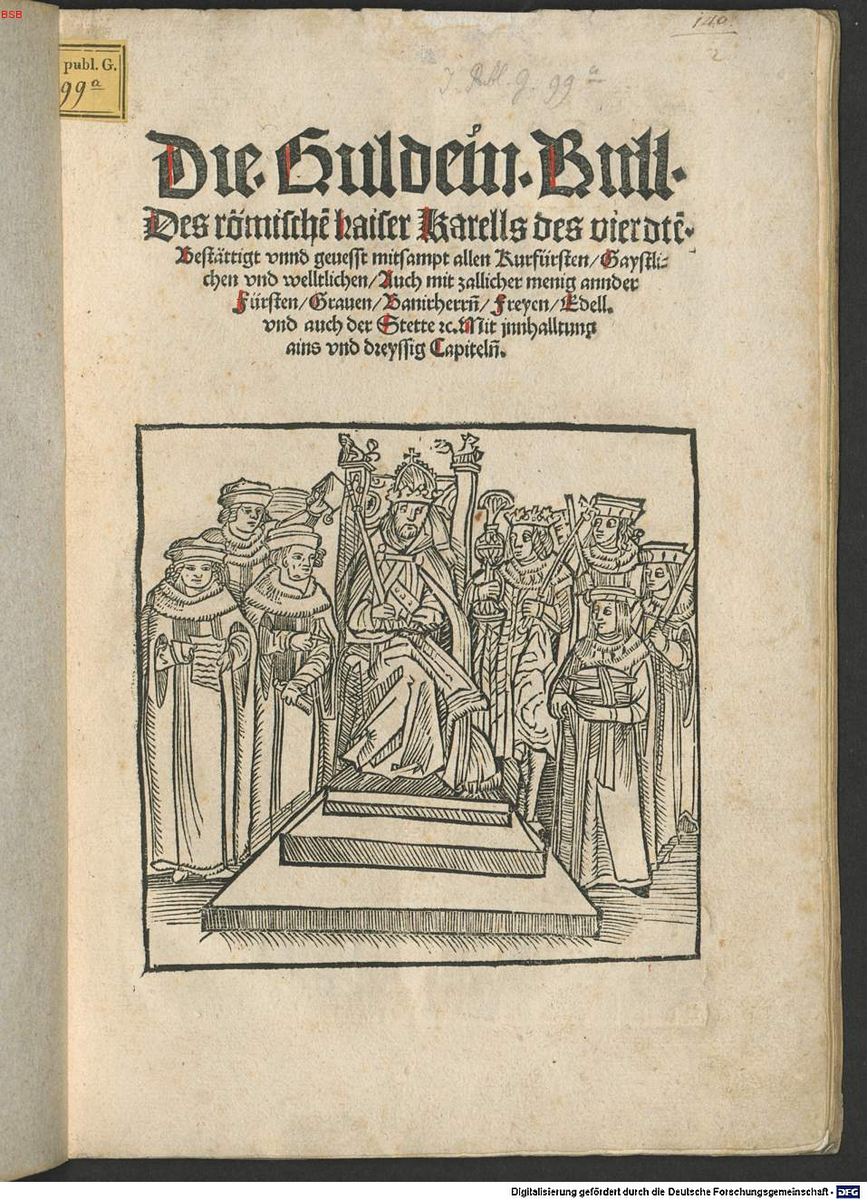Election and Coronation of King and Emperor: The “Golden Bull” (Munich Edition of 1515)
Abstract
Named for its golden seal, the “Golden Bull” of 1356 was the legal foundation of the Holy Roman Empire and provided something akin to its constituent structure starting in the fourteenth century. It was a collection of laws by Emperor Charles IV (1316–1378) that remained in force until the dissolution of the Empire. Written in Latin, the Golden Bull regulated both the election and the coronation of the Roman-German kings and emperors by the electors. The Golden Bull was reprinted many times throughout the Empire’s existence. The title page of this German-language translation published in Munich in 1515 shows the crowned emperor with the three ecclesiastical (left) and four secular electors (right) at his side.
Source

Source: The “Golden Bull” of Emperor Charles IV. Munich edition, 1515. Title page. Bayerische Staatsbibliothek, Digital Collections. Available online at: http://daten.digitale-sammlungen.de/bsb00002038/image_5
Bavarian State Library
Further Reading
“The Golden Bull of 1356,” German History in Documents and Images, https://ghdi.ghi-dc.org/sub_document.cfm?document_id=3739&language=english (last accessed: October 14, 2021)
Bettina Brandt, Germania und ihre Söhne. Repräsentation von Nation, Geschlecht und Politik in der Moderne (Historische Semantik, vol. 10). Göttingen: Vandenhoeck & Ruprecht, 2010.
Helmut Neuhaus, Das Reich in der frühen Neuzeit (Enzyklopädie Deutscher Geschichte, vol. 42). 2nd edition. Munich: Oldenbourg, 2003.
Barbara Stollberg-Rilinger, Das Heilige Römische Reich Deutscher Nation. Vom Ende des Mittelalters bis 1806. 4th edition. Munich: C. H. Beck, 2009.
Joachim Whaley, Germany and the Holy Roman Empire. 2 vols. Oxford and New York: Oxford University Press, 2012.